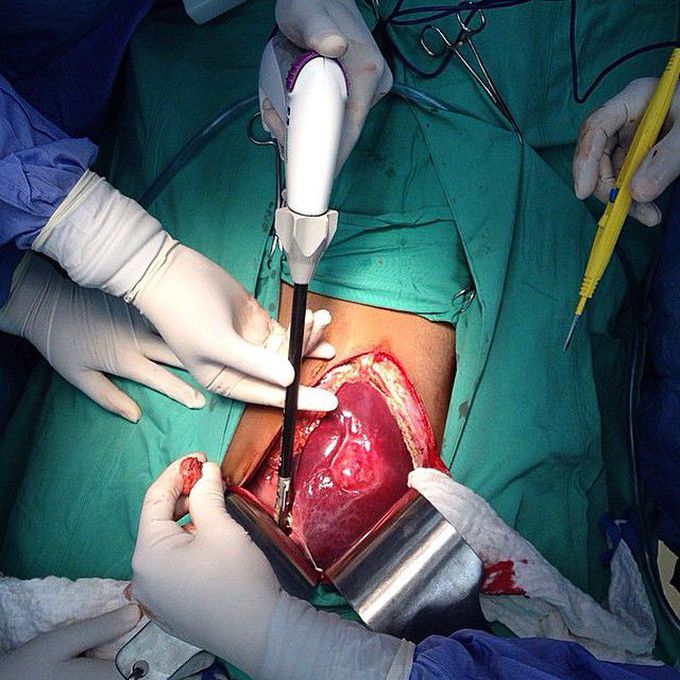


Surgical excision of a liver tumor
Hepatoblastoma is a rare cancerous tumor of the the liver that mainly affects children and does not spread outside of the liver, but rare cases of metastasis do occur, with the lung being the predominant site of metastases both at presentation and relapse. The etiology is unknown, although some genetic conditions has been associated with an increased risk for developing hepatoblastoma, including Beckwith-Weidemann syndrome, familial adenomatosis polypi, Wilson disease and other conditions like low birth weight and inborn errors of metabolism as are the glycogen storage diseases. Symptoms can vary depending on the size and location of the tumor and whether or not metastasis occurred. These are swollen abdomen, fever, weight loss, nausea, vomiting, abdominal pain and jaundice. The primary treatment is surgical resection, however, chemotherapy plays an important role by increasing the number of tumors that are resectable. The prognosis for patients with resectable tumors is fairly good, however, the outcome for those with nonresectable or recurrent disease is poor.

